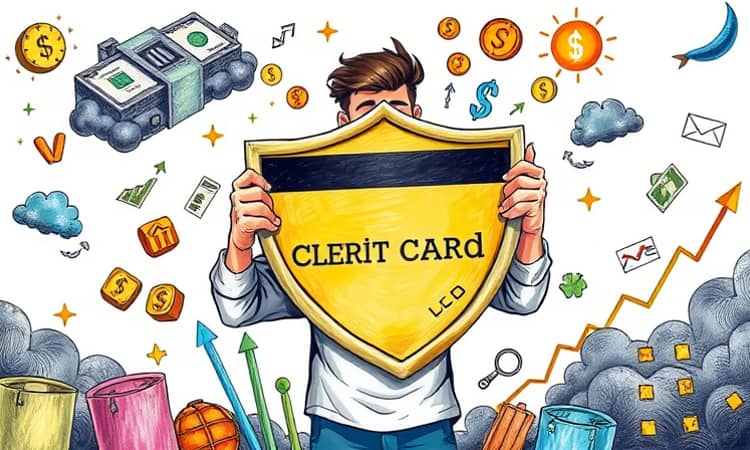Credit cards can feel like a double-edged sword: powerful financial tools on one side, sources of confusion and anxiety on the other. With so many misconceptions floating around, it’s easy to make choices that harm your score or cost you money. By separating myth from reality, you can harness credit cards for your benefit and build a strong financial foundation.
Debunking Core Credit Card Myths
Myths tend to spread quickly, but facts have the power to set you free. Below are the most common misunderstandings, each clarified with precise details and data-backed insights.
- Myth: Applying for a new credit card will significantly hurt your credit score. Fact
- Myth: You must carry a balance to build credit. Fact
- Myth: Checking your own credit score hurts your credit. Fact
- Myth: Paying off and closing a credit card removes any bad history from your report. Fact
- Myth: Credit cards inherently put you in debt. Fact
- Myth: Higher income means a higher credit score. Fact
- Myth: You should only pay the minimum payment to avoid credit damage. Fact
- Myth: Credit cards always hurt your credit. Fact
How Credit Card Rewards Actually Work
Many consumers believe rewards programs are too complex or that they’re scams designed to trap you into debt. In reality, rewards can provide significant value if you choose the right card for your spending habits and avoid interest charges by paying off your balance every month.
- Cashback Cards: Earn a fixed percentage on each purchase, often higher in select categories like groceries or gas. Always compare category rotating offers and cap limits.
- Points-Based Cards: Redeem points for travel, merchandise, or statement credits. Values vary by program, so check redemption rates before committing.
- Travel Miles Cards: Ideal for frequent flyers; each dollar spent translates into miles that can be redeemed toward flights or hotel stays. Watch out for blackout dates and fees.
To maximize rewards, align the card’s benefits with your routine expenses. If you spend heavily on dining and travel, a card offering bonus points there can outperform a flat-rate cashback card. Always factor in annual fees and promotional APRs to ensure your net gain remains positive.
Credit Reporting and Score Factors
Understanding the components of your credit score can help you prioritize the right behaviors. Below is a breakdown of the FICO score factors and their relative weights.
Regularly reviewing your credit report—noting that this action is a soft pull—helps identify errors and monitor progress. Since updates occur on a monthly cycle, be patient but persistent in checking for accuracy.
Quick Facts and Key Takeaways
By separating fact from fiction, you arm yourself with the knowledge to make smart credit decisions. Below are essential strategies and reminders to keep your credit in top shape.
- Pay your balance in full each month to avoid accumulating interest.
- Keep your credit utilization low—under 30% on each card.
- Monitor your credit report regularly with soft inquiries only.
- Choose rewards aligned with your spending patterns to maximize value.
- Avoid unnecessary applications that trigger multiple inquiries.
Credit cards, when used responsibly, become tools for financial growth rather than pitfalls of debt. Armed with these facts and best practices, you can navigate the credit landscape with confidence, unlocking benefits and building a resilient credit profile for years to come.
References
- https://www.discover.com/credit-cards/card-smarts/credit-card-myths-debunked/
- https://www.chase.com/personal/credit-cards/education/basics/credit-card-myths-debunked
- https://www.experian.com/blogs/ask-experian/credit-myths-vs-facts/
- https://www.oklahomacentral.creditunion/blog/six-credit-card-myths-debunked
- https://www.afcu.org/learn/credit-debt/credit-card-myths-debunked/
- https://creditcards.wellsfargo.com/how-do-credit-card-rewards-work/
- https://www.bankrate.com/credit-cards/advice/credit-card-myths/
- https://cadencebank.com/insights-and-articles/personal/7-common-credit-card-myths-and-facts














